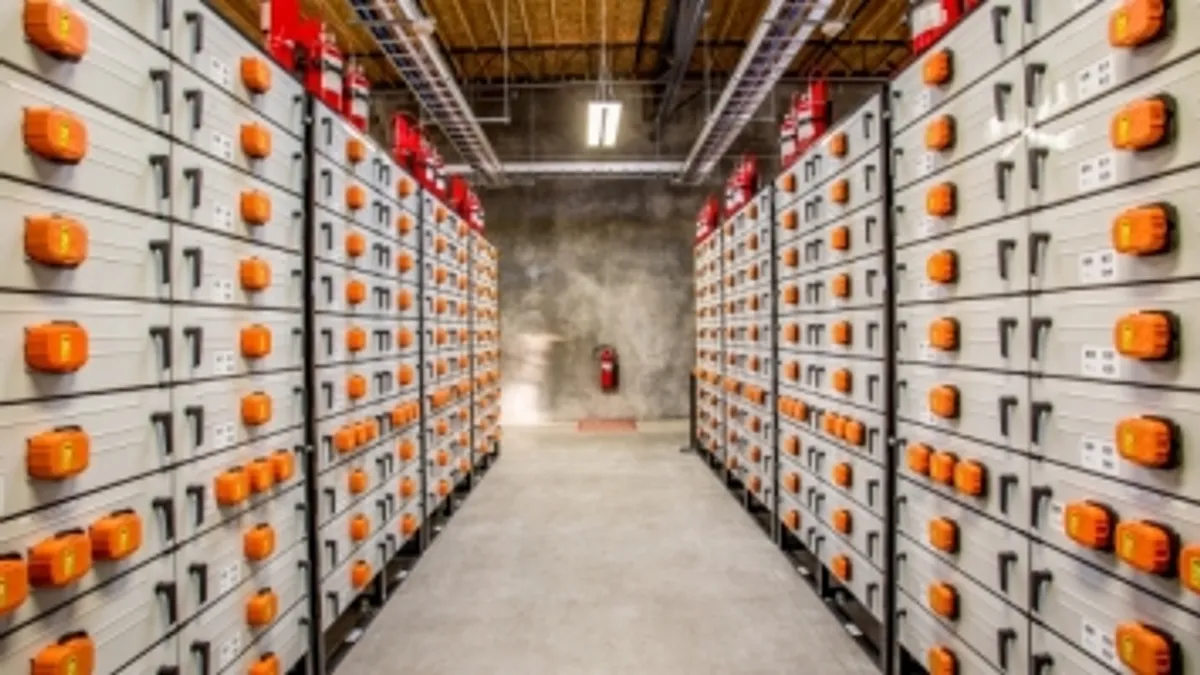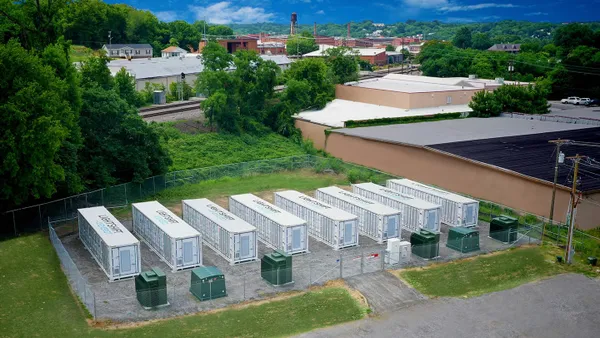Dive Brief:
- Programs and policies approved by New York regulators have "effectively accelerated" the state's energy storage market and helped it to deploy or contract for 1,186 MW of capacity, according to a new report from the Department of Public Service (DPS).
- The New York Public Service Commission in 2018 set a goal of deploying 3,000 MW of energy storage capacity by 2030, with an interim 2025 target of 1,500 MW. The annual "State of Storage" report, published Thursday, found total deployed or contracted capacity is now 79% of the state's interim target and 40% of the 2030 goal.
- There are more than 8,000 MW of energy storage projects in the interconnection queues of New York utilities and the state's Independent System Operator, though the report, said it is "possible that not all of these projects would get built by 2030."
Dive Insight:
Declining battery costs and a "suite of energy storage deployment policies" have helped New York to rapidly grow interest in the storage market, according to the DPS report.
The 8 GW in interconnection queues reflects not just contracted or deployed, but also potential projects and "indicates robust activity in the industry," the department said in the report. "Though it is likely that some of these projects may not be built due to unfavorable project-specific economics and for other reasons," it added.
“Today’s report demonstrates the tremendous success New York is having toward meeting the country's largest energy storage target," DPS interim CEO John Howard said in a statement.
Along with declining technology costs, the report finds the ability to pair storage with solar PV systems to take advantage of new revenue streams is driving storage adoption.
Coupling energy storage with renewable generation allows developers to maximize New York's Value of Distributed Energy Resource VDER compensation scheme. And the report says projects that combine energy storage with solar generation and utilize a Community Distributed Generation (CDG) program reported installed costs as low as $300-$400/kWh in 2020. Larger projects, above 5 MW that intend to provide wholesale market services, averaged installed costs of $372/kWh in 2020.
"Soft costs," including customer or site acquisition, interconnection and financing, averaged 20% of total installed costs for CDG-paired energy storage in 2020, a decline from 30% in 2019.
But the report also notes challenges. Of the storage projects that may never be built, the report says respondents to a New York State Energy Research and Development Authority survey of storage developers "mentioned known challenges with permitting requirements in New York City in particular."
"The survey also indicates that, in the developer’s experience, about 30% of prospective distribution-level projects eventually become contracted and are therefore likely to be built, whereas only 26% of prospective customer-connected projects are eventually contracted," the report found.















